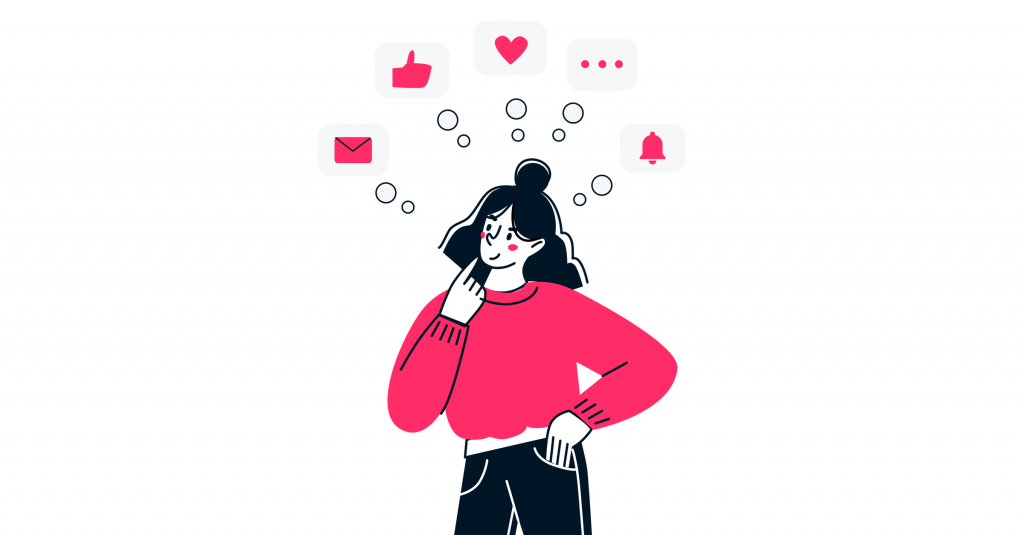Have you ever wondered how Derren Brown can predict how people will behave when put in certain situations? Does he have supernatural powers, or can anyone influence behaviour if they have the right skills? This got us thinking about how we could help our clients lead their customers towards desired goals and, ultimately, improve the effectiveness of their marketing. Hint.. it is all about behavioural science.
If you’re not familiar with Behavioural Science, it’s the study of human behaviour and why people tend to do completely irrational things. We make decisions based on biases that we’re unaware of and make choices that defy logic. It’s why people regularly play the lottery even though the likelihood of winning is minuscule; they over-estimate their odds of success (optimism bias) and under-estimate their chances of failure.
Here are a few of our favourite biases below that we think every marketer should be aware of with some tips and advice you can implement right away.
Decision paralysis
Customers want to feel they have control of choosing, but don’t want to spend too much time making decisions. When it comes to how you market your products and services, limit the choices you give them to avoid choice fatigue in increasing conversion rates. This is a 101 behavioural science tip.
Immediate advice
Count how many choices you are offering visitors to your website, both in places you want them to click and/or products and services you are selling. Perhaps the number of them is interfering with the decisions you are trying to achieve. Can you reduce this number without limiting the user journey?
Social proof
We tend to copy the behaviours of others, especially in unfamiliar situations. Framing your marketing messages by showing why existing customers selected you, helps encourage new customers to pick you, too. That’s why testimonials, client reviews and brand ambassadors are such powerful behavioural science techniques.
Immediate advice
Evaluate the customer testimonials on your homepage. Or, if you don’t have any on the homepage, consider how easy is it to navigate to where they are elsewhere on your site?
The IKEA Effect
Did you know we’ll pay disproportionately more for something we’ve helped create? Providing low-risk personalised options to your products and services early on (whilst avoiding decision paralysis) builds an emotional connection and often triggers an uplift in sales figures.
Immediate advice
Consider how customisable your products or services are. Are you offering your potential customers enough options when it comes to what you provide?
Framing
People tend to make very different decisions based on how a fact is presented – like a milkshake that’s 90% fat-free vs contains 10% fat. You can significantly influence decision-making by reframing information through imagery and context according to your needs. And if you need an additional boost, set the statistics against a different data set, e.g. don’t focus on a 20% staff turnover rate, instead highlight that it’s 5% better than the industry average.
Immediate advice
If you want to see the importance of contextual factors in how audiences perceive a product or service – take a look at this brilliant video: would you have paid the $2?
Loss Aversion
We feel twice as bad losing something than the positive feeling associated with gaining something. This loss aversion may be impacting our attitude to risk. If you can offer free trials or delayed payments, your buyer is more likely to purchase – since we are predisposed to want to avoid the loss we would feel once we give up the product.
Immediate advice
Consider offering a demo or a free trial of your product and see if there is a difference in the response rate. If you are a service-based business perhaps free consultation of your services can help your leads see what they are missing out on.
Decision-science in marketing
When decision-science is used in the corporate world, especially in marketing, it can have a profound effect. By understanding customers, and their behavioural science biases, marketers can tackle objectives head-on and nudge them towards the desired outcome.
Immediate advice
Take an audit of your current marketing strategy, with the biases we’ve discussed above in mind. How much thought have you put into your strategy when it comes to customer decision-making?
Choose an agency that puts data into decision-making
At Fifty Five and Five, research and data are the foundation of our work for clients. Whether it’s the role of behavioural science or the insight behind a joined-up marketing strategy, we put thought into what we do. If you want to see a greater return on investment from your marketing, contact the team at Fifty Five and Five and see how we can help.

